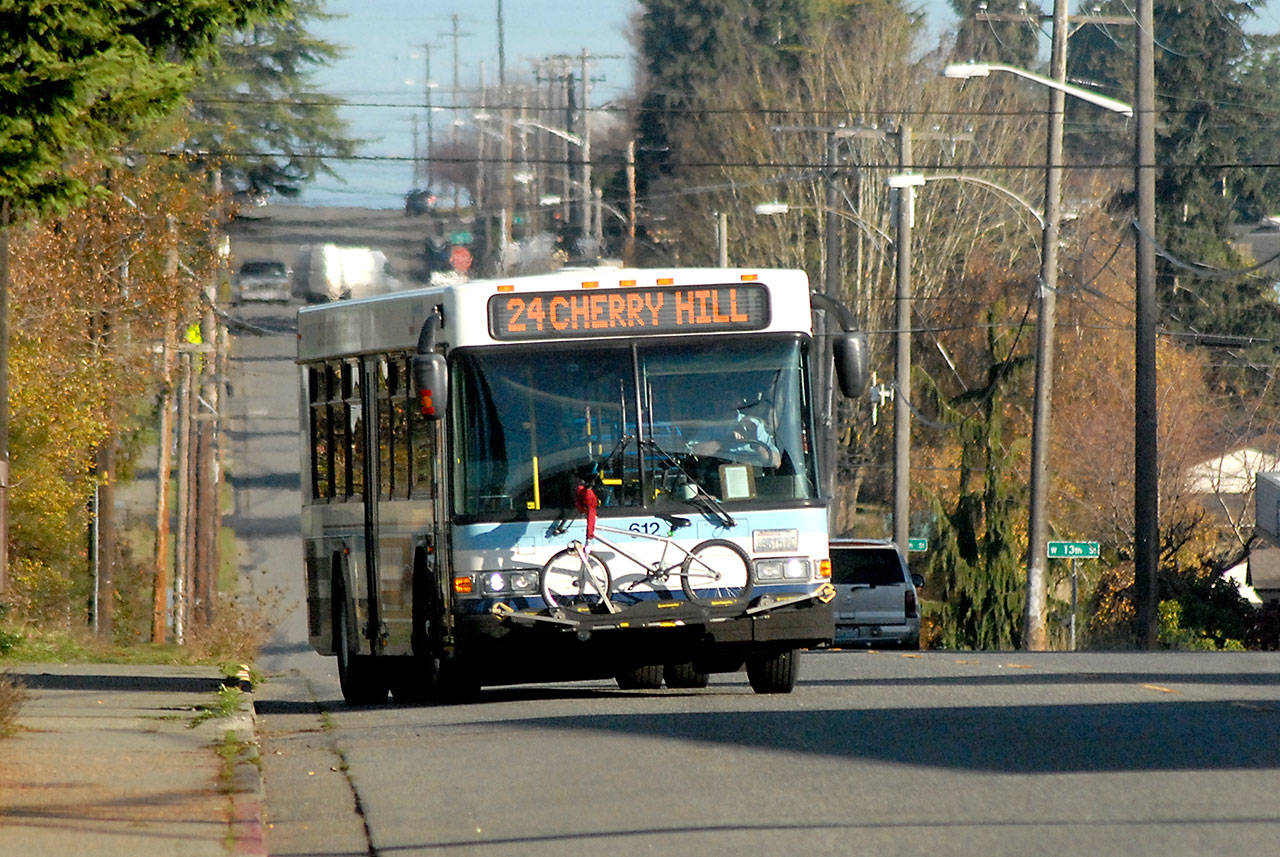Clallam Transit officials have begun planning for the unknown impacts of state ballot Initiative 976.
The $30 car tabs measure, which voters approved Nov. 5, could slash state funding for Clallam Transit if it is upheld in court, agency officials said.
General Manager Kevin Gallacci said Clallam Transit is well positioned with a $4.6 million operating reserve to weather the immediate impacts of I-976.
“We don’t need to panic,” Gallacci told the Clallam Transit board on Nov. 20.
“We need to plan. I think we’re covered in 2020, and our planning for late 2020 and 2021 is going to be key.”
The Tim Eyman-sponsored initiative sets a flat $30 annual fee for most vehicle registrations and revokes or repeals other sources of funding for local and state transportation agencies.
The state’s budget office has said the measure would eliminate more than $4.2 billion in state and local transportation funding over six years.
I-976 was approved by 53 percent of voters statewide and 50.7 percent of voters in Clallam County.
A coalition of transportation agencies and local governments has filed a preliminary injunction in King County Superior Court that would temporarily block the initiative.
The state Legislature will likely address the implementation of I-976 early next year, transit officials said.
“So many things are up in the air right now,” Gallacci said.
“When someone asks us what our impacts are, we don’t know the definite impacts.”
The Clallam Transit board voted unanimously in October to oppose I-976, citing potential impacts to service and the bottom line.
Gallacci said the governor’s office issued a statement shortly after the election saying approved contracts will be honored.
“If you have signed contracts and a shovel in the ground, the intent there is to complete those projects and be funded for those,” Gallacci said.
Clallam Transit received a $1.3 million state grant this year to help pay for 10 large fixed route buses.
Those coaches will be delivered as scheduled in early 2020, Gallacci said.
State grants for paratransit and vanpool purchases may be eliminated, and several items in Clallam Transit’s transportation development plan will be deferred as a result of I-976, officials said.
“I like to use the word defer because we may be restored this funding,” Gallacci said. “We may or may not. We don’t know.”
The deferred actions include an expanded service on the east side of Port Angeles and a third, mid-day run for the Strait Shot route from downtown Port Angeles to Bainbridge Island.
Meanwhile, Clallam Transit will continue to look for operational efficiencies, Gallacci said.
“Another consideration would be to look at potentially doing a fare increase in the future,” Gallacci told the board.
“I’m just throwing out there a potential mid-year fare increase in 2020. We haven’t had a fare increase since 2011.”
The coalition seeking the preliminary injunction to block I-976 is composed of the state Transit Association, Association of Washington Cities, Garfield County Transportation Authority, Intercity Transit, Amalgamated Transit Union Legislative Council of Washington, King County, the city and port of Seattle and transit rider Mike Rogers.
The Clallam Transit board reviewed Wednesday a preliminary budget that shows a diminishing operating reserve if I-976 is upheld and the agency takes no corrective action.
The 2020 budget, which will be adopted next month, shows $11.3 million in operating revenue, $10.9 million in operating expenses and a $4.6 million operating reserve going into 2021.
Finance Manager Dunyele Mason’s long-term projection shows operating deficits of $311,501 in 2021, $533,927 in 2022, $672,091 in 2023 and $788,796 in 2024.
“We have assumed that the grant funding is going to continue as awarded through 2020,” Mason said.
“In this forecast, we assume that the state is going to run out of that money by the end 2020, and therefor ’21 through ’24 only contains the federal portion of the grants that we’re currently getting for operating purposes.”
Lindsey Schromen-Wawrin, Clallam Transit board and Port Angeles City Council member, said it was “too early to make decisions” about I-976.
“All of our options should be on the table, and it’s going to probably have to be a combination of things,” Schromen-Wawrin said.



